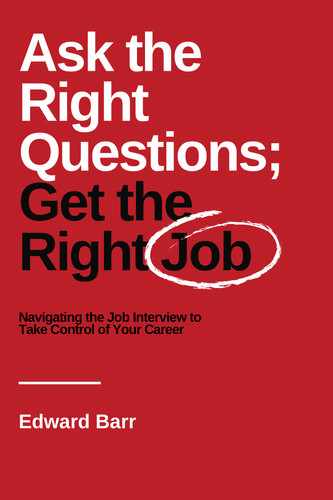Teddy, 44, has been working for 13 years as a middle manager at a large health care organization in a mid-sized city. Making an average salary, he supports two children whom his wife is homeschooling. Although Teddy began his career as a schoolteacher, he became interested in marketing and took some classes to transition out of education and into a small marketing role at a community hospital in his hometown. Gaining a few years of experience, he left that position for a bigger role in a bigger city. Taking an entry-level position, he quickly became the director of the department. But now, he feels that he has no chance to move up in his current organization and has been looking at outside employment opportunities.
One day, Teddy spots an announcement for a vice president of marketing at a competing health care system, Tri-state Healthcare, also a not-for-profit. However, Tri-State Healthcare has been growing quickly by purchasing several hospitals and a medical school in another distant larger city. They are pursuing this strategy to compete with another large health care system in town, Mega Healthcare, which already owns a medical school and is aggressively buying local suburban hospitals. Media accounts taut Tri-State Healthcare’s purchases in the distant town as the path to successfully compete with Mega Healthcare system. Teddy sees this job as an opportunity to get in on the ground floor of a massive successful health care system. He has been working at a not-for-profit organization with a mission focused on serving the poor.
The executive position with Tri-State Healthcare has a reputation as an aggressive player, one that has a big advertising budget, a creative director on staff, and all the markings of a for-profit. The opportunity really appeals to Teddy. He wanted to become a top executive; he’d like to make more money (and this job doubles his current salary), and he is looking for a change. This is happening at a time when hospitals in America, especially not-for-profits, are undergoing significant change, with a move away from independent hospitals to large hospital systems that are acquiring not just other hospitals but entire medical practices.
On the outside, the opportunity looks too good to be true to Teddy. He gets the interview, and he gets the job offer. He sees his experience valued, and he sees himself with the Vice President title on his business cards. More than that, however, he sees the big salary. He sees little else. Meanwhile, and unknown to Teddy, in its aggressive growth mode, the company he now plans to join has been operating in the red, losing millions while acquiring doctors’ practices (the division Teddy will work for).
The CEO of Tri-State Health has been diverting millions of dollars from the endowment restricted to the main hospital of the system to save the floundering hospitals in the market where he purchased the medical school and other hospitals. Eventually, the losses and inappropriate diversion of funds become public and hundreds lose their jobs, including Teddy. And, various members of the administrative staff, including the CEO, go on trial for their inappropriate practices. But, that doesn’t change the fact that Teddy lost his dream job because he was unaware he was being hired by an institution crashing into bankruptcy.
Some Questions to Ponder
What facts suggest Teddy’s ultimate decision?
If you are Teddy, what do you do?
Why would you make the decision you are making?
Would the financial status of Tri-State Healthcare have deterred you from taking the position?
How important is a title?
Is it better to take a job temporarily to get an executive position to set you up for another executive position?
